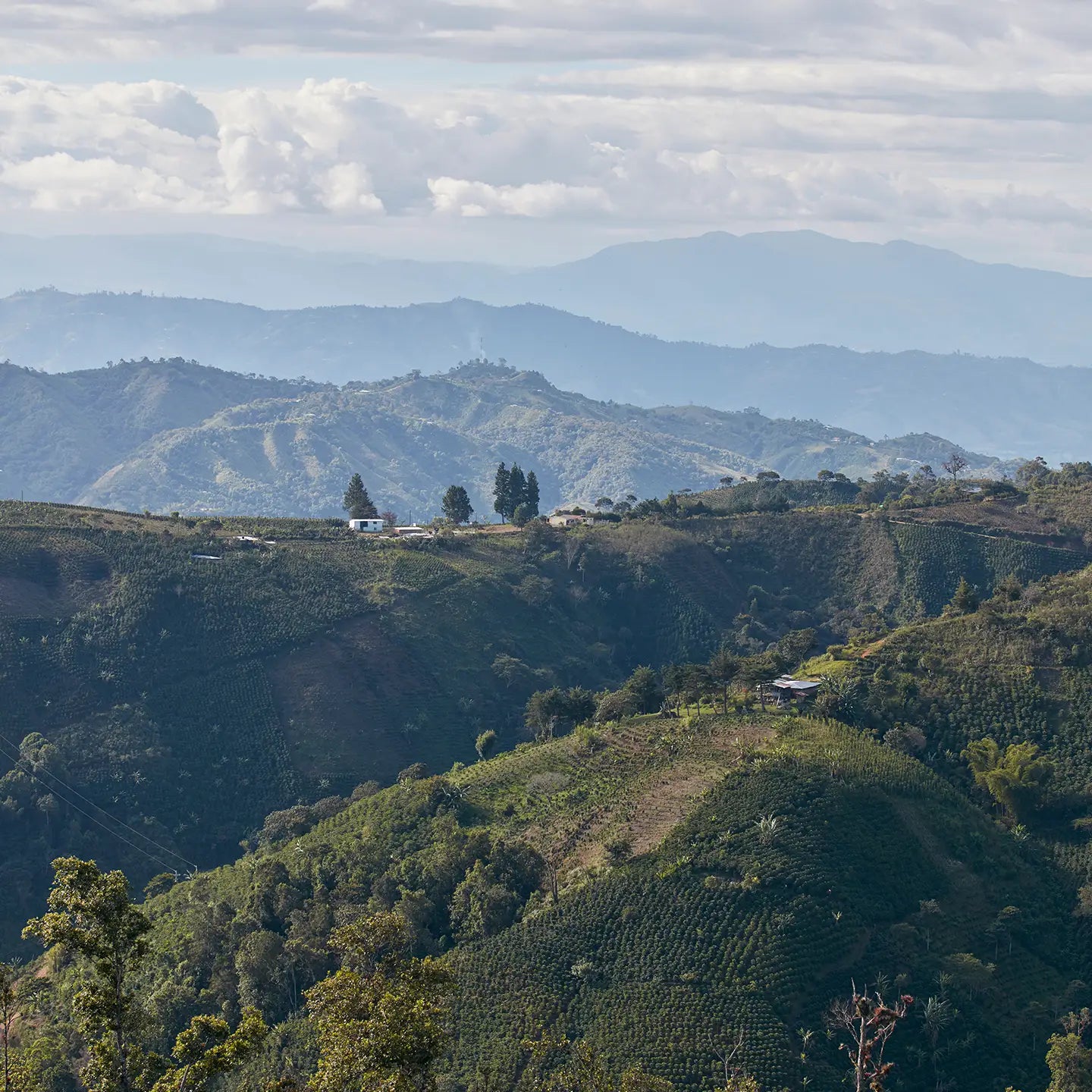
Origin Bulletin: November
Learn: Javanica
Words by Barista Trainer, Dan Ferries.
I first heard of the Javanica varietal when I met long-term producer partner or Origin, Erwin Mierisch, at an event he was hosting in Bristol. He shared the following with me;
“My dad and grandfather were coming back from our farm, El Limoncillo, in the early 2000s when they stopped to buy some fruit. The man selling the fruit also had a bag labelled "Java" for sale. My dad had heard of this variety and its famous renowned high cup quality, but he was skeptical they would stumble upon seeds of this variety at a roadside stand. My grandfather however, had a bit more faith and purchased the bag. It was initially thought to be related/mutation of Typica because of its elongated seeds, but we had our seed genetically tested at RD2 labs in France. To our good fortune it was indeed the Java variety!”
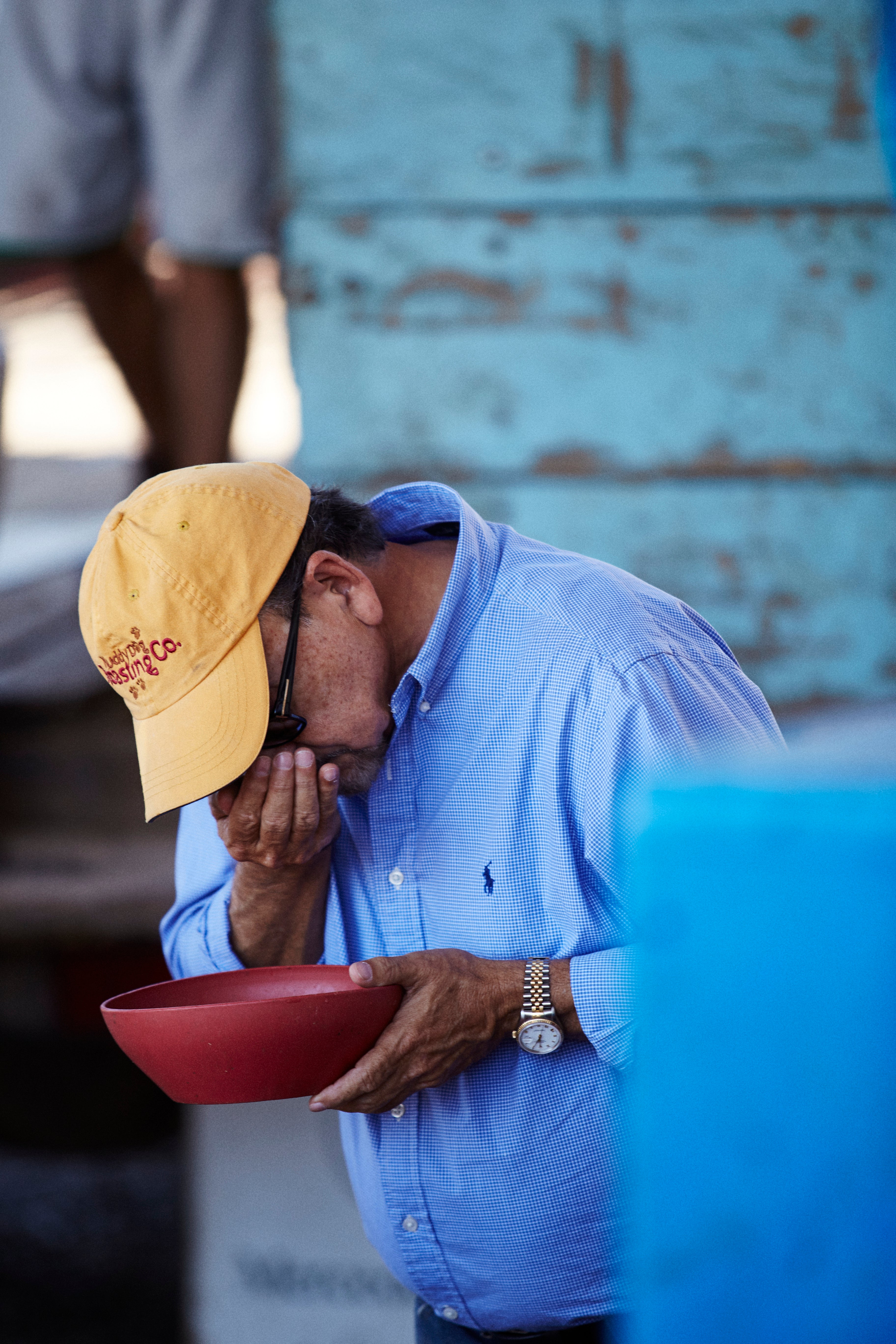
Javanica History
Javanica is originally a Java varietal. What the Mierisch family call Javanica, is a selection that they have made over the 20+ years that the family have worked with the varietal on their farms in Nicaragua. The Mierisch family have achieved this by breeding the highest scoring but also most resistant and productive trees, and this selection is Javanica.
The name comes from combining the word Java and the first part of the word Nicaragua, where it is grown. Javanica.
When discussing Javanica, it’s important to acknowledge the history of Java. The Java coffee varietal is traditionally associated with Indonesia, more specifically the volcano-dotted Indonesian island that this varietal established its name, Java. Whilst the coffee and the island have names in common, this varietal has a history dating further back than its existence on this island.
The coffee was first introduced to the island of Java by the Dutch in the early 19th century. Through thorough research and extensive genetic fingerprinting, it has been revealed that ‘Java’, as we know it, is actually a selection from the Ethiopian landrace population called Abyssinia.
With a unique long-berry bean and bronze tipped leaves, the Abyssinia has an inherent potential for hybridization with other varietals, making it an attractive choice for coffee growers looking to develop new and improved coffee plants. The diversity of this cultivar led to the plant being introduced to other parts of Indonesia, such as the Aceh region of Sumatra, where it has become an important part of the coffee industry.
The Java varietal has become well recognised for its flavour profile of a rich, full body with medium acidity. Beyond the final cup, this plant is known for its high yields, resistance to Coffee Berry Disease (CBD) and Coffee Leaf Rust (CLR). The prestigious aspects of the plant have made Java a globally sought after coffee varietal.
Discover: Colombia + Sugarcane Decaffeination
Colombian coffees have earned a global reputation for being one of the finest specialty coffees in the world. The country has a unique geography, with rich volcanic soils and high altitudes, climate and consistent rainfall. Producers here are dedicated to traditional cultivation methods, handpicking only the ripest, highest-quality cherries which influences the production of coffee with bright acidity, complex fruity and sometimes floral notes, with a rich, clean finish.
These qualities can be found in our Atlas Decaf coffee, which we’re proud to announce that recently won the 2024 World Coffee Innovation Award for Low/No Caffeine product. Packed with apple, caramel and chocolate notes, this exceptional coffee showcases how balanced, smooth, and high-quality Colombian coffee can be, even when decaffeinated.
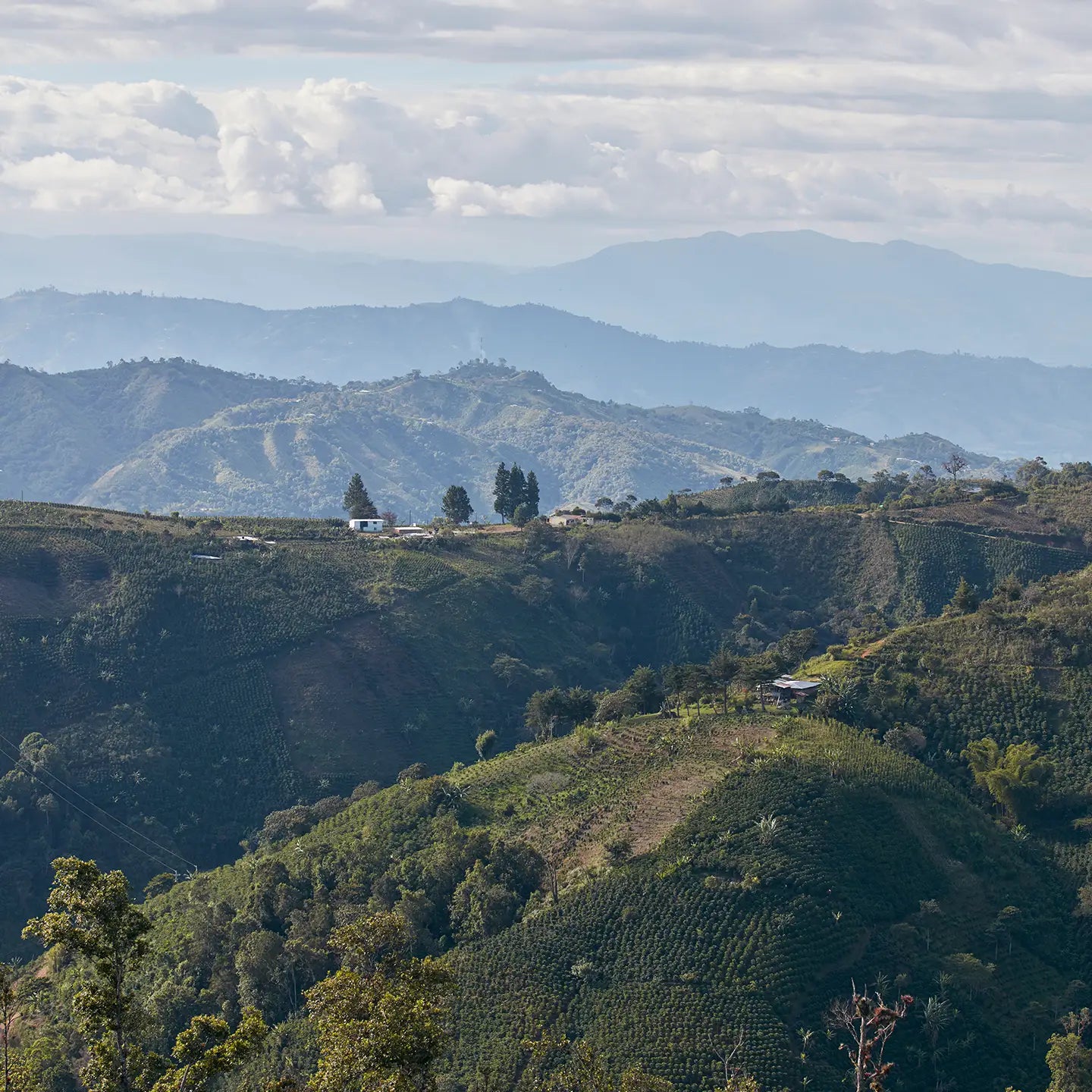
Atlas Decaf
The consumption of decaffeinated coffee in the UK has increased considerably in recent years, mainly due to an improvement in decaffeination practices that produce high quality decaf coffees.
The Atlas Decaf project was set up by our Director of Coffee, Freda Yuan. We collaborate with a local exporting partner in Colombia for the initiative, which involves exclusively purchasing coffees from female producers. The cooperative's quality control team, which is also comprised of females, shortlisted a selection of lots that meet our desired profile to create this beautiful coffee for us. Contributed to by multiple producers, their passion for coffee shines through in the final cup. While the composition of producers will change seasonally based on productivity and quality, the profile will always remain consistent; always sweet, balanced and uncompromisingly delicious.
Atlas is decaffeinated using an all-natural Sugarcane process. It involves pressurising and expanding the coffee beans with light steam, before it is rinsed in Ethanol Acetate, an organic compound created by the fermentation of non-GMO Colombian sugarcane. Mountain water and steam are then added to remove any remaining caffeine before the coffee is dried. The sugarcane process not only helps to preserve most of the original flavours of the coffee, but it actually enhances the acidity and sweetness.
Experiment: Atlas Decaf Flash Brew
Flash brewing creates a bright and well-balanced chilled coffee, and as the ice forms part of the recipe, there’s no dilution of flavour as it melts. With this recipe we wanted to show that our Atlas Decaf is not just great for brewing with espresso, it tastes exceptional brewing it with other methods, this one in particular enhancing the natural sweetness and juicy apple acidity.
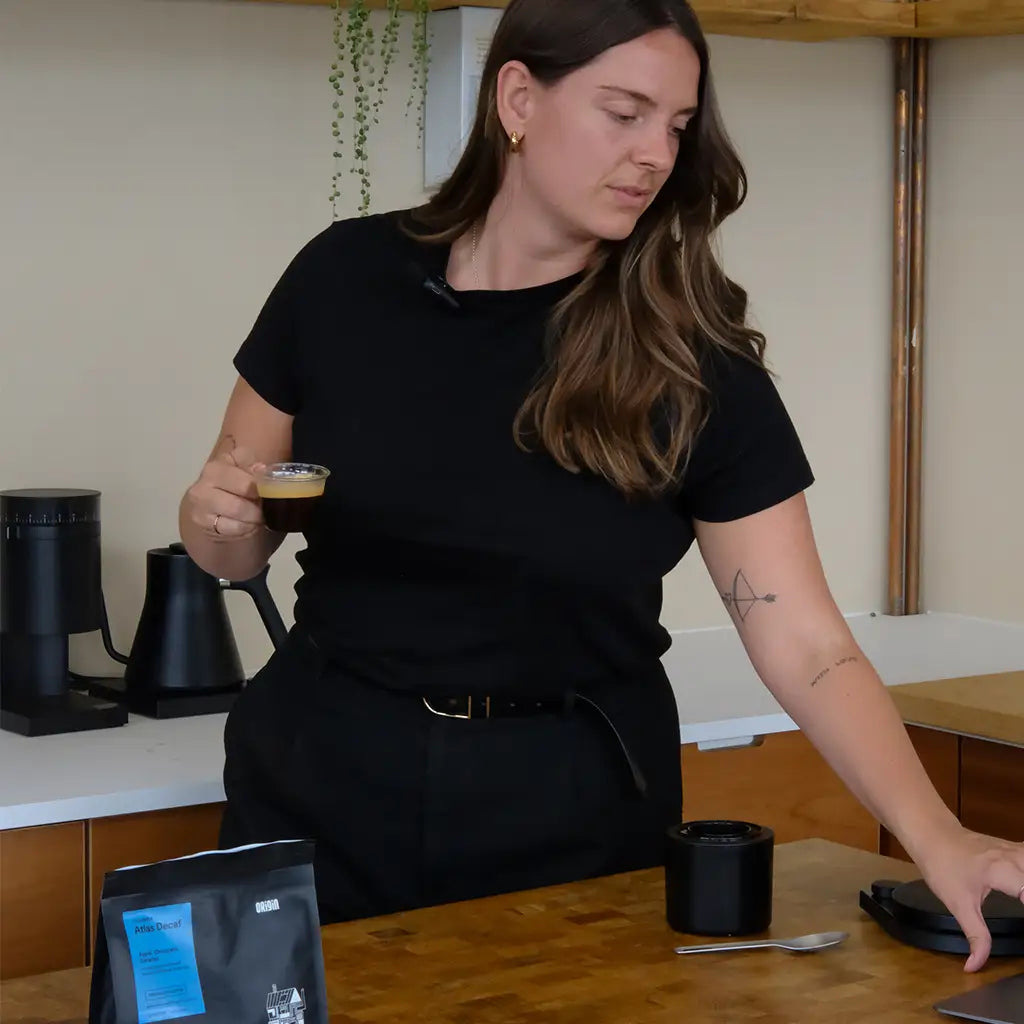
Flash Brew Recipe
What you’ll need:
- 30g Atlas Decaf coffee, ground medium
- 150g ice
- Water: 220g at 92°C + extra for filter rinsing
- Kalita coffee dripper, filter papers + vessel
- Scales
Method:
- Place filter paper in Kalita + rinse with hot water, discard water
- Pour the ground coffee into the brewer and gently shake to flatten the coffee
- Place the Kalita on scales and tare (zero)
- Using a circular motion, bloom the coffee by pouring 60g of water before 0:30 seconds—start your timer as soon as you begin pouring
- Gently swirl the container
- At 0:30, start the second pour. This time pouring until 100 grams of water on the scales
- At 1:30, pour the final amount of water until 220g of water is in—swirl again
- Wait for all the water to pass through the coffee grounds, aiming for a total brew time of 3:30 minutes
- Your finished brew time should be around 3:00 - 3.30 minutes
- Add ice + serve
You may also like
See all articles
Nov 01, 2024
Origin Bulletin: November
This month our education team brew our award-winning decaf + explore the Javanica varietal. Read more

Oct 01, 2024
Origin Bulletin: October
In this monthly bulletin, we explore two rare processing methods: Cold Fermentation and Mossto. Read more
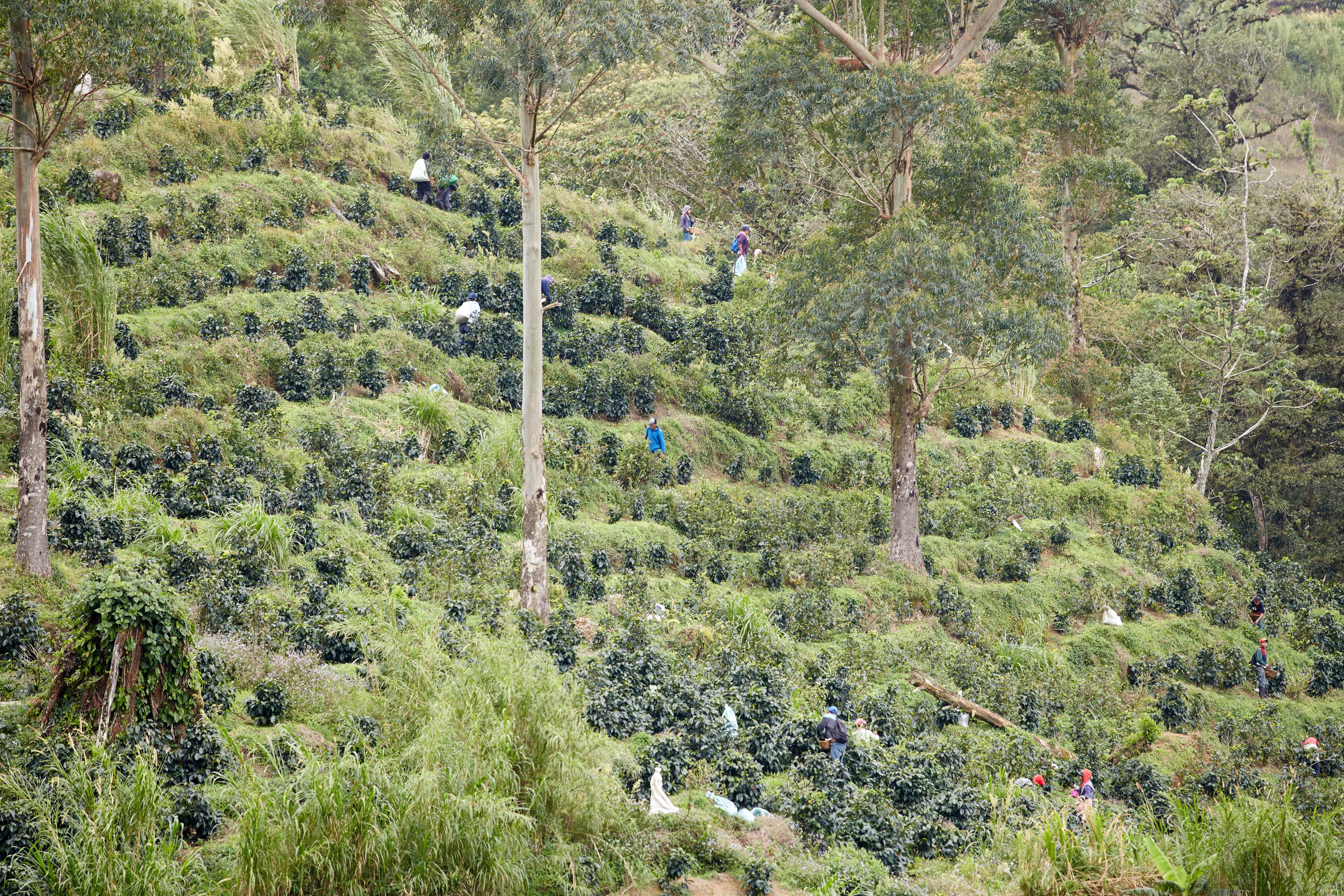
Aug 29, 2024
Origin Bulletin: September
This month we explore sensory skills and recycling. Read more











